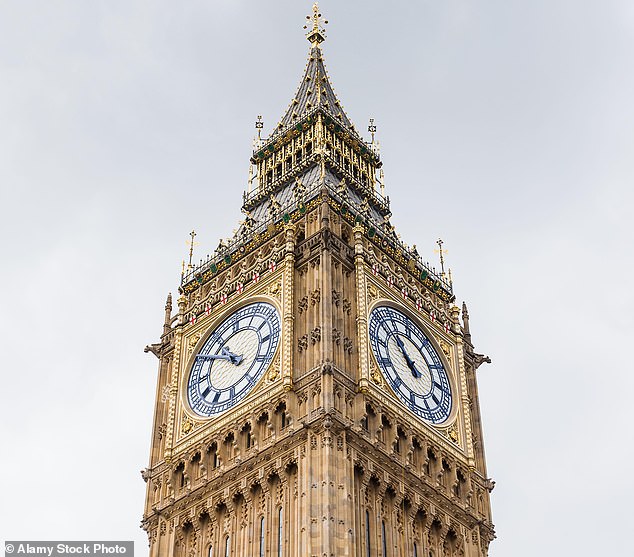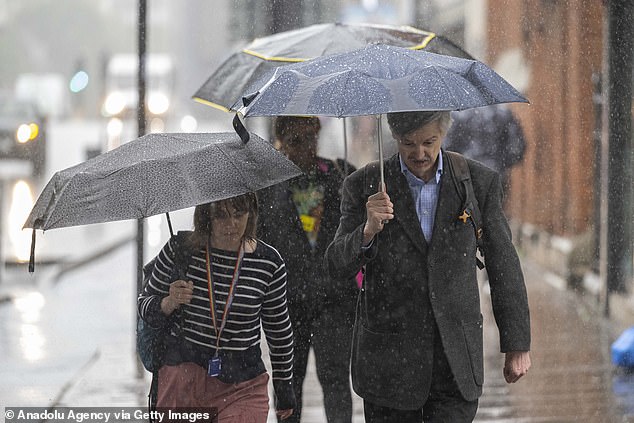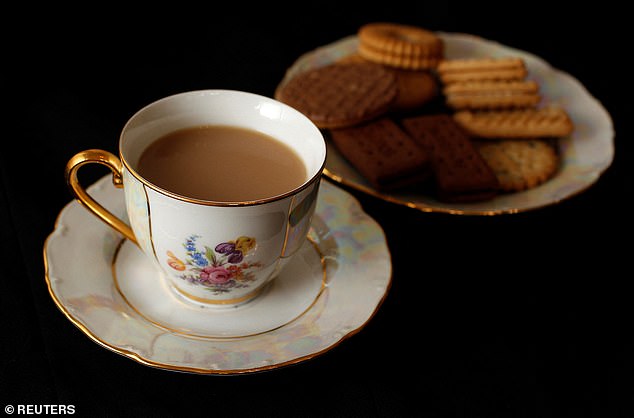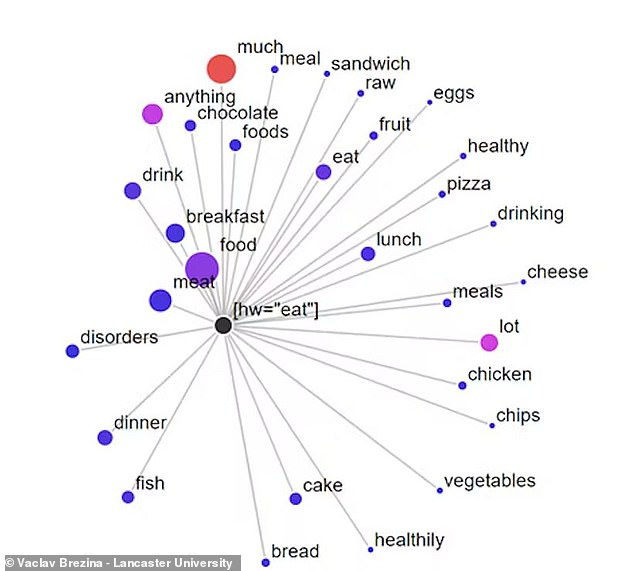Table of Contents
The idea that we constantly talk about tea and the weather may be one of the oldest stereotypes about Brits.
But now scientists have confirmed that this cartoon is actually based on reality.
Linguists at Lancaster University analyzed 100 million words to reveal what Britain is really talking about.
Unsurprisingly, words like “the,” “and,” “a,” “of,” and “to” topped the list.
However, the team also discovered that some of the most used words in the English language refer to time and punctuality, food and drink, weather, emotions and our bodies.
Scientists have revealed that Britain’s favorite topics of conversation are time and punctuality, food and drink, emotions, the weather and our bodies.
To understand how words are used, Professor Vaclav Brezina and his colleagues analyzed every word in the 2014 British National Corpus.
This is a broad sample of current language containing informal speech, fiction, newspapers, magazines, academic writings, and other sources.
Blogging for The conversationProfessor Brezina said: “The way someone speaks and the words they use tell us quite a bit about where someone is from, their social background and even their age.”
“Language reflects and shapes society; as a linguist, my job is to discover how.”
From their analysis of hundreds of thousands of unique words, the researchers have identified five key themes in British speech and the words that define them.
Time and punctuality
One of the most discussed topics in the UK is time and delay.
This topic is so important to British people that “year” and “time” are the two most used nouns in British English.

One of the most discussed topics in the UK is time and delay. This topic is so important to British people that “year” and “time” are the two most used nouns in British English.
“Year” appears 1,963 times per million words, while “time” appears 1,983 times per million.
This doesn’t even include the expressions “on time” or “on time,” which appear with a combined frequency of 47 times per million words.
An analysis of individual temporal words also reveals the UK’s preferences for certain topics.
For example, “summer” is much more popular than “winter,” occurring 144 times per million compared to just 63.
Sunday and Saturday are the most popular days of the week for speaking, with 114 and 104 words per million respectively.
Meanwhile, December is the most popular month at 149 times per million, followed by March and May at 145 times and 142 times per million respectively.
The weather
There’s nothing Brits like to talk about more than the weather.
One study suggested the average Brit spends four months of their life complaining about the weather.
This is not surprising, since it is estimated that we spend eight hours a week thinking about the weather each week.

Professor Brezina’s analysis found that the word “climate” appeared at a frequency of 60 times per million words.
Professor Brezina’s analysis found that the word “climate” appeared at a frequency of 60 times per million words.
And, in an indication of how the weather rules our plans, he discovered that it appears most commonly next to the words “pub” and “restaurant.”
When it comes to our favorite weather topics, it’s no surprise that sun and rain are the two biggest concerns.
The word “sun” appeared at a frequency of 91 times per million, while rain appeared 51 times per million as a noun and 15 times per million as a verb.
Storms, clouds, and snow also dominate our conversations, occurring at frequencies of 32, 39, and 37 times per million words, respectively.
Professor Brezina also found that the use of climate-related words such as “climate change” and “emissions” increased by 21 percent between 2010-2015 and 2016-2020.

It seems that the British prefer to talk about good weather, since “sun” is used more frequently than “rain”, “storms”, “clouds” or “snow”.
Food and drink
When it comes to our food and drink, the humble cup of tea reigns supreme.
According to data published by Professor Brezina and his colleagues, the word “cuppa” appears 231 times per million and “tea” appears 92 times per million.
Meanwhile, coffee is only produced 73 times per million, while “champagne” is produced six times less than tea.
Other frequently mentioned beverages include wine, beer, milk, and juice.
And, when it comes to food, the analysis reveals some interesting trends about Britain’s eating habits.
Dinner appears to be the most popular meal in the UK, appearing 68 times per million words.
This puts it ahead of lunch at 51 times per million and breakfast at just 43.
Professor Brezina also revealed that Brits have a bit of a sweet tooth, with cake being talked about three times more than salad.

Tea was one of the drinks most frequently referenced by Britons, occurring six times more often than “champagne” (file image)

Professor Brezina created this chart to show how words are used with the verb “eat.” The closer a word is to “eat” in the center, the stronger the association between the two, while the larger the circle, the more frequently those words appear together.
Emotions
Britain may be the home of the “stiff upper lip”, but researchers have revealed that we actually talk about our emotions quite often.
And, despite the reputation for being gloomy, analysis revealed that “happy” is actually the most frequently spoken emotional word by Brits, being used 208 times per million words.
However, Professor Brezina points out that it is often used to express satisfaction with phrases such as “I am very happy to stay at home.”
When it comes to words that express negative emotions, Britain once again sticks true to its stereotypes, with “sorry” being the most used word.
Often used to apologize or politely decline something, this word is used with a frequency of 204 times per million.
Our bodies
According to researchers, Britons also spend a lot of time talking about their bodies.
In particular, we seem especially interested in using the words “hand,” “head,” “eye,” “foot,” and “heart.”
The researchers suggest that the popularity of these phrases could also be due to the frequency with which they appear in metaphors or other common phrases.
For example, ‘hand’, which has a frequency of 530 times per million words, could appear in phrases such as ‘give a hand’ or ‘help a hand’.
Meanwhile, “boss,” which appears 435 times per million words, can be used as a job title like “head of sales.”
Professor Brezina added: “Expressions like ‘on the one hand’, ‘in public view’, ‘put your foot down’ and ‘break someone’s heart’ are examples of how our bodily experience of the world is present in language.” ordinary. like we use it every day.’

